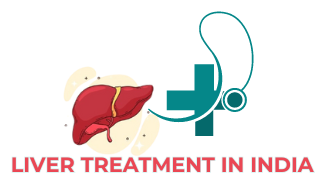Introduction: How Genetics Influence Liver Health
Maintaining a healthy liver is essential for overall wellness. Recent advances in genetic research reveal that genetics play a pivotal role in liver function, influencing an individual’s susceptibility to liver diseases. This article explores the fascinating connection between genetics and liver health, the importance of family medical history, and actionable strategies for proactive care.
The Genetic Blueprint of Liver Health
Our genetic makeup significantly impacts how well the liver performs essential functions. Research shows that certain genetic markers influence how susceptible a person might be to liver diseases. Knowing these genetic patterns helps healthcare professionals develop personalized strategies to maintain liver health.
The study of genetics allows for the early identification of risks, such as metabolic disorders that may impact liver function. By analyzing genetic predispositions, individuals can adopt preventive strategies that improve their quality of life.
Inherited Liver Conditions: Unraveling Genetic Risks
Some liver conditions, such as cirrhosis or non-alcoholic fatty liver disease, can run in families due to shared genetic traits. Identifying these markers is crucial for early diagnosis and treatment.
Early Detection and Risk Mitigation
Medical research has uncovered that certain genes increase the likelihood of liver diseases, providing critical insights that allow for timely intervention. If detected early, healthcare professionals can recommend lifestyle changes or treatments to delay the progression of these conditions.
Familial Patterns in Liver Disease
Studies have demonstrated that liver diseases often occur in family clusters, highlighting the importance of genetics and shared lifestyle factors. Individuals with a family history of conditions like liver cirrhosis, hepatitis, or fatty liver disease are at higher risk and should prioritize early screening.
Role of Genetic Testing in Familial Risk Assessment
Healthcare providers emphasize genetic testing as a tool to better understand familial risks. Early screenings based on family history allow for targeted interventions, enhancing the likelihood of favorable outcomes.
The Role of Genetic Counseling in Promoting Liver Health
Genetic counseling has become an essential part of managing liver-related risks. Genetic counselors provide personalized guidance, helping families understand hereditary conditions and assess their risk factors.
Through genetic counseling, individuals gain insights into their genetic predispositions, empowering them to make informed decisions about their health. These counselors also recommend screening schedules for at-risk individuals, ensuring proactive monitoring of liver health.
Lifestyle Modifications Based on Genetic Insights
Genetic insights allow individuals to tailor their lifestyles for optimal liver health. For example, individuals with a higher genetic risk of fatty liver disease may benefit from a diet rich in antioxidants and regular exercise.
Key Lifestyle Adjustments for Liver Wellness
- Dietary changes: Reducing sugar and fat intake to prevent fatty liver.
- Regular exercise: Engaging in physical activities to improve liver function.
- Avoiding toxins: Limiting alcohol and exposure to harmful substances that exacerbate genetic vulnerabilities.
Adopting these measures helps individuals maintain long-term liver health and avoid complications.
Early Detection and Intervention: A Family Responsibility
The interplay between genetics and liver health emphasizes the need for early intervention. Families with a history of liver conditions should adopt regular screening routines.
Importance of Regular Screenings for At-Risk Families
Early detection ensures that potential issues are identified before they become severe. Screening for liver enzymes, genetic testing, and ultrasounds are effective methods for early diagnosis. Families can support one another by encouraging healthy habits and regular medical check-ups.
The connection between genetics and liver health underscores the importance of proactive care. By understanding genetic risks, individuals and families can take preventive steps to safeguard liver wellness. Adopting healthy habits, seeking genetic counseling, and prioritizing early detection can improve liver health for future generations.

